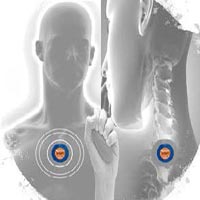Taopatch® combined with home-based training protocol to prevent sedentary lifestyle and biochemical changes in MS patients during COVID-19 pandemic

Accepted: 4 August 2021
HTML: 104
All claims expressed in this article are solely those of the authors and do not necessarily represent those of their affiliated organizations, or those of the publisher, the editors and the reviewers. Any product that may be evaluated in this article or claim that may be made by its manufacturer is not guaranteed or endorsed by the publisher.
Authors
In Multiple sclerosis (MS) it is important to preserve the residual physiological functions of subjects. The aim of the present study was to investigate the influence of nanotechnological device treatment combined with home-based training program (TP) on lactate level, hand grip strength and cervical mobility on MS patients. Seventeen MS patients were enrolled in the study and randomly assigned to an experimental group (EG) in which the Taopatch® nanotechnological device was applied or to a control group (CG). All the participants carried out a cervical range of motion (1) assessment and the hand grip test at baseline (T0) and after TP (T1), also investigating the lactate levels to figure out if there could be a correlation with the possible changes in the investigated parameters. The results showed no significant differences in both groups for ROM. As regards the hand grip test, EG showed a statistically significant improvement on strength for both hands, dominant (p = 0.01) and non-dominant (p = 0.04), while the CG showed an improvement only for the non-dominant hand (p = 0.001). No correlation was found between baseline lactate level and cervical ROM change. We can definitely conclude that exercise and Taopatch® can help to improve and maintain hand strength in MS subjects and also can prevent sedentary lifestyle during the COVID-19 pandemic time. These are preliminary results that need further investigations, possibly increasing sample size and lengthening time of intervention.
How to Cite
PAGEPress has chosen to apply the Creative Commons Attribution NonCommercial 4.0 International License (CC BY-NC 4.0) to all manuscripts to be published.

 https://doi.org/10.4081/ejtm.2021.9877
https://doi.org/10.4081/ejtm.2021.9877




